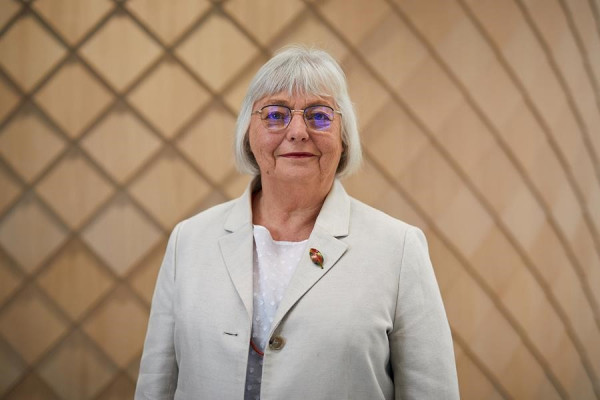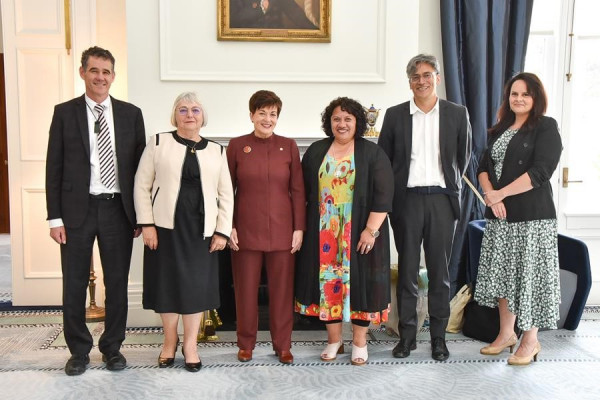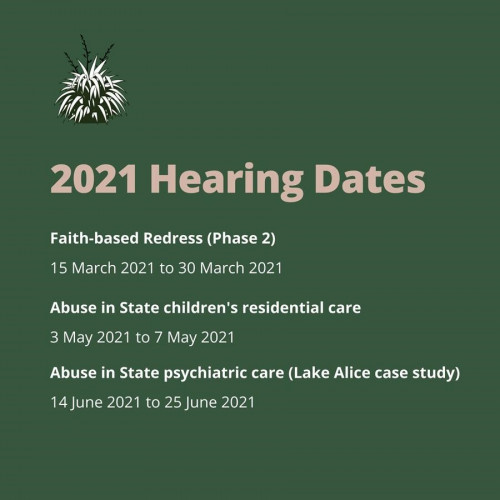Pānui January 2021 - What we have learnt so far

Happy New Year greetings from Chair Coral Shaw
Happy New Year everyone! I have had a great break with lots of swimming at the beach and quality time with family and friends. But now the team and I are back and ready to knuckle down and work hard.
The break has given me much needed time and space to reflect on what we have achieved and what more needs to be done. Despite 2020’s misfortunes, its obstacles and delays to well-laid plans, I think that the Inquiry had a really good year. We completed the building of our dedicated hearing space, listened to more than 550 survivors and held 3 public hearings.
---------------------------------------------------------------------------------------------------------------
What we’ve learnt so far and the release of our Interim Report
Another highlight for me was the release of our interim report. This report is an update of what we’ve learnt in the last 18 months from listening to survivors, witnesses and researchers, and an outline of the work that lies ahead of us. The interim report consists of 2 volumes: Vol 1 focuses on our learnings and Vol 2 is devoted to the words and voices of survivors. I am very proud of Volume 2 as amplifying survivor voices is one of the core focuses of our work.
We also published three other reports: the Cohort Study & Peer Review report, the Economic Cost of Review report and a research report that covers the numbers and types of people in care and extent of their abuse.

Royal Commission Commissioners with Governor General Dame Patsy Reddy at a meeting to present the interim report.
What do all these reports tell us?
These reports reaffirm that abuse in care is a serious long-standing problem in New Zealand, with wide-reaching consequences that impact not only the individuals but also their communities and societies. The whole nation of Aotearoa has been affected by abuse suffered by people in care.
Some highlights from the reports:
- Our researchers estimate that nearly 40%, or up to 250,000 people, were likely to have been abused in care. Even on the most conservative estimates, there has been more abuse in care than previously thought.
- Abuse in care costs an individual approximately $857,000 over their lifetime.
- The total cost of abuse in care between 1950 to 2019 is estimated to be between $96 billion and $217 billion. Financial costs to the New Zealand economy make up between $20.8 billion and $46.7 billion.
- The abuse people suffered in care was horrific, in many forms and settings. Many survivors also did not know why they were removed from their families. Māori, Pacific and disabled people were disproportionately affected by abuse in care.
- The consequences of abuse in care can be profound and life-long. Survivors have told us of the damage that their time in abuse has left on their physical and mental health, as well as the disruption and disconnection to their relationships, culture and faith.
- The abuse impacts especially hard on Māori, Pacific and people with disabilities. The consequences are inter-generational too.
- According to survivors, seeking redress was overall an unsatisfactory and frustrating process whether it was from the state or from a faith-based institution. While seeking redress, survivors were frequently not believed and had to relive their abuse, sometimes numerous times.
- You can access and read all the reports here.
-------------------------------------------------------------------------------------------------------------
2021: remembering the past and looking forward
I just want to say thank you so much to the survivors who have come forward to share their accounts with the Inquiry. We are grateful for your bravery. Without you, this work would not be possible and your experiences, along with the experiences of others who are not able to come forward, would remain unknown.
Our work to date has only just begun to uncover the extent of abuse in care, its impact and the severe cost to society. We know that much work remains to be done so we can produce meaningful and balanced recommendations to prevent harm and find better ways to repair the damage done.
The Inquiry’s nine current investigations will continue, as well as private sessions, research and policy work. We have scheduled a number of public hearings for this year, including the Faith Based Redress (Phase 2) in March, Child Residences in early May and abuse at the Lake Alice Child and Adolescent Unit in June. Other investigations which may have public hearings this year include investigations on the specific impacts on Māori, Pacific, and Disabled people and the Catholic and Anglican Churches. Dates for these will be announced as soon as possible.
You can find out more about public hearings here.

2021 hearing dates for the following investigations. Phase 2 of faith-based redress will take place from 15 March to 30 March 2021. Abuse in State children's residential care will take place from 3 May to 7 May 2021, and Abuse in State psychiatric care (Lake Alice case study) will take place from 14 June to 25 June 2021.
I look forward to a productive and hopefully healing year ahead.
Ngā manaakitanga,
Judge Coral Shaw
Chair
---------------------------------------------------------------------------------------------------
Survivor support is available
Well-being support is available for all registered survivors. If you need support or just want someone to talk to please get in touch with our Contact Centre on Freephone 0800 222 727 8am-6pm (NZT) Monday to Friday or email contact@abuseincare.org.nz
